When eating chicken eggs we see orange yolks and yellow yolks, so which type of egg yolk is better to eat?
1. What gives egg yolks their color?
Dr. Sunoh Che, University of Maryland, said that there are many factors that can affect the color of egg yolks that hens lay, and most of them are due to diet, specifically:
- Feed composition of hens : The amount of orange-yellow carotenoids (plant pigments) such as lutein from alfalfa meal and zeaxanthin from marigold extract, significantly affects the yolk color.
- Amount of corn in the feed : Corn can affect the yellow color of the yolk. Industrial hens are often fed corn, so most eggs sold in supermarkets and stores are yellow, but not really bright.
- Xanthophyll content : Xanthophyll is a yellow compound that affects egg yolk color, commonly found in leaves and grains. Not all plants have the same xanthophyll content - some have higher concentrations and different types. The xanthophyll-containing plants that chickens eat can affect yolk color.
- How to raise: Free-range hens, with access to natural food, tend to lay eggs with brighter yolks. This is because these hens often have a more varied diet with protein sources from insects, carotenoids and xanthophylls from plants.
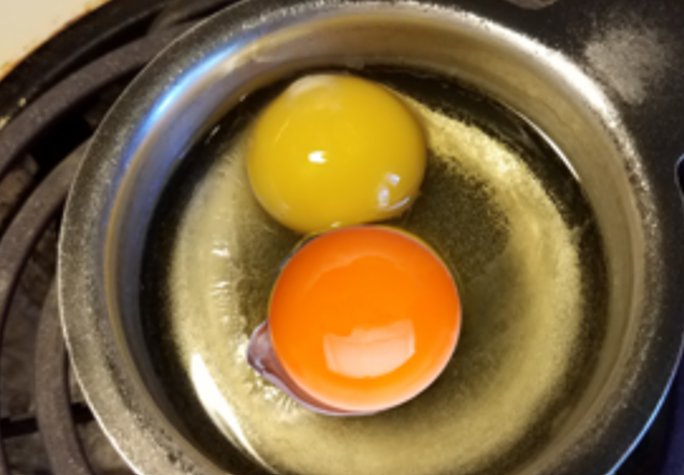
The color of egg yolks often reflects the hen's diet.
Thus, it can be seen that the change in color of egg yolks originates from many factors related to the way of raising (living) and diet of the hens. In fact, the color of egg yolks depends almost entirely on the pigments in the chicken feed.
Here is the meaning of egg yolk colors:
- Light yellow: Indicates that the hen has a diet high in wheat, barley or white cornmeal.
- Bright yellow: Often seen in hens that have eaten a lot of corn and/or alfalfa meal.
- Orange: This color can be achieved by adding marigold petals or red peppers to the chicken feed. A darker orange color can also reflect a foraging diet, where the hen has access to different plants and insects in the wild. If a hen eats more of a yellow-orange pigment called xanthophyll, it will also produce a darker orange egg yolk.
Eggs with yellow yolks also typically come from factory-farmed chickens, which are raised in cramped coops or cages with little or no exposure to outdoor air or sunlight.
Darker yolks are often associated with healthier eggs produced by hens that are free-range or fed a natural diet. Sometimes customers request darker yolks, so to increase sales, some commercial farmers have started adding natural or artificial colors, such as marigold or paprika, to their hens' feed.
Additionally, the age, health of the hen and the season of egg production can also affect yolk color:
- During the spring and summer, hens may be outside more. This may increase their foraging ability, resulting in more orange yolks.
- The age of the hen may also play a role in yolk color, although that is still debated.
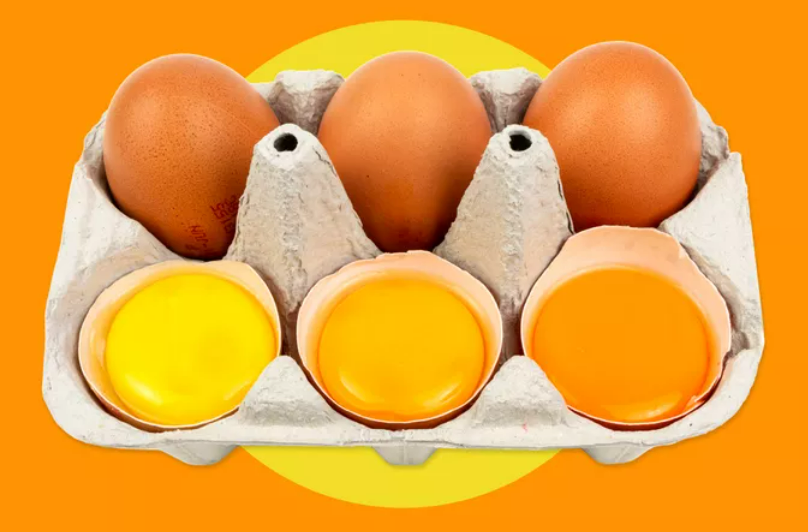
Regardless of the color of the yolk, the nutritional value is the same, containing many vitamins A, D, E, K as well as other essential nutrients…
2. Are orange yolks more nutritious than yellow yolks?
Dr. Che said that the color of the yolk does not necessarily indicate that the egg is more nutritious. In other words, the color of the egg yolk has little to do with its nutritional content.
Accordingly, the nutritional content of eggs, including fat-soluble vitamins such as vitamins A, D, E and K, depends more on the hen’s diet, health, breed, age and environment than on the color of the yolk. Free-range hens often lay eggs with higher nutritional content such as omega-3 fatty acids and vitamins due to their varied diet.
However, yolk color can indicate how much carotenoids are in the egg. Carotenoids are linked to good eye health, along with a reduced risk of cancer, diabetes, and inflammation in the body. In general, darker orange egg yolks indicate higher concentrations of carotenoids. Aside from carotenoids, yolk color does not indicate whether an egg is more or less nutritious.
Also, egg size is important, as larger eggs contain more nutrients.
3. Do orange egg yolks taste better?
Orange egg yolks tend to taste better than yellow egg yolks. This is because free-range hens' varied diets of insects and plants tend to produce darker, more flavorful yolks. Chicken feed can produce orange yolks, but the flavor will not compare to yolks from chickens that forage in the wild.
So the color of the egg yolk is a result of the pigments in the chicken’s feed. Dark and light yolks have the same nutritional value and we get the most nutritional value from eating the whole egg, as all of these nutrients work together in the body. However, the best choice for delicious eggs is eggs from free-range chickens…
Source: https://giadinh.suckhoedoisong.vn/trung-ga-co-long-do-cam-hay-long-do-vang-ngon-va-bo-duong-hon-172250206201120007.htm




![[Photo] Da Nang: Hundreds of people join hands to clean up a vital tourist route after storm No. 13](https://vphoto.vietnam.vn/thumb/1200x675/vietnam/resource/IMAGE/2025/11/07/1762491638903_image-3-1353-jpg.webp)

















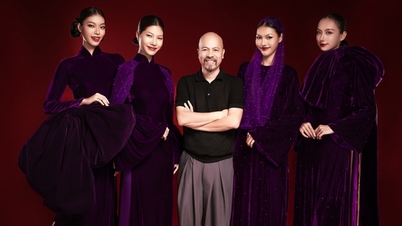
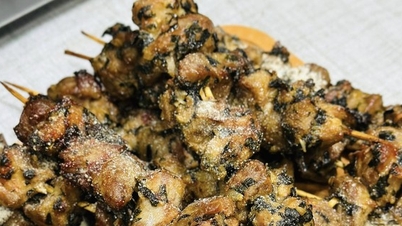

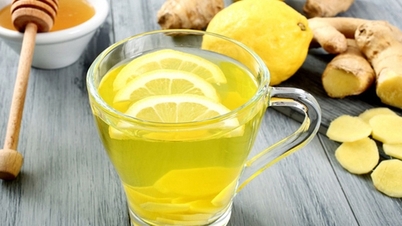















































































Comment (0)